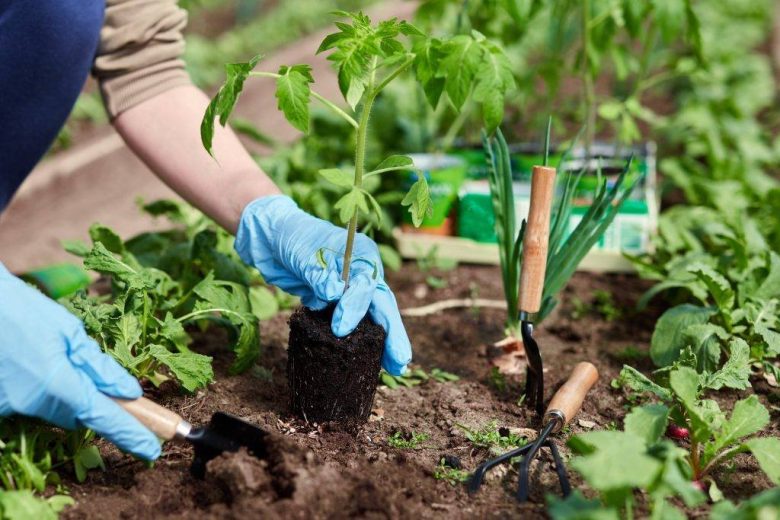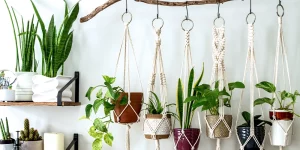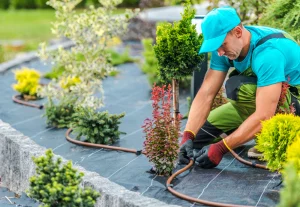Gardening is a rewarding hobby that brings us closer to nature, but it also comes with its fair share of challenges, the most common of which are pests that can wreak havoc on our beloved plants. Although pesticides are readily available, they often contain harmful chemicals that can negatively impact the environment and our health. Fortunately, there are some effective natural pest control methods that can help protect your plants without resorting to harmful chemicals.
1. Buy Oil
Neem oil is a natural pesticide extracted from the seeds of the neem tree. It is known for its powerful insect-repellent properties. Neem oil disrupts the feeding and reproductive patterns of common garden pests, such as aphids, whiteflies, and spider mites. To use neem oil, simply mix it with water and spray it on your plants. It is safe for your plants and the environment.
2. Beneficial Insects
Introducing beneficial insects to your garden is an excellent way to control pests naturally. Ladybugs, lacewings, and parasitic wasps are some of the beneficial insects that prey on common garden pests. You can attract these insects to your garden by planting nectar-rich flowers such as marigolds and calendula. They would help control the plague population.
3. Diatomaceous Earth
Diatomaceous earth is a fine powder made from the fossilized remains of diatoms, a type of algae. It wears out the exoskeletons of many insects, effectively dehydrating and killing them. Sprinkle diatomaceous earth around the base of plants or on leaves with pests. It is safe for humans and pets, but deadly for garden pests.
4. Homemade Pest Spray
You can make your own pest spray with common kitchen ingredients such as garlic, onions, and peppers. These sprays are effective against various types of garden pests. Simply mix these ingredients with water and strain the mixture into a spray bottle. Apply it to your plants, concentrating on the undersides of the leaves, where pests often hide.
5. Planting Guidance
With companion planting, certain plants are strategically placed together to deter pests. For example, planting marigolds near tomatoes can help prevent aphids. Basil can protect your tomatoes from mealybugs. Research complementary planting methods for your specific crops to create a natural barrier against pests.
6. Crop Rotation
Crop rotation is a technique in which the position of plants changes each season. This disrupts the life cycle of many pests that depend on specific host plants. This is a simple but effective way to prevent an increase in pest populations in your garden.
7. Sticky Traps
Sticky traps are a non-toxic way to catch flying pests such as whiteflies and fungus gnats. These traps use bright colors and sticky glue to attract and capture insects. Hang them near plants to reduce pest populations.
8. Organic Soap
Organic insecticidal soap is gentle but effective at controlling soft-bodied pests such as aphids, mites, and whiteflies. These soaps come from natural sources and work by breaking down the protective layer of these pests. Simply dilute the soap with water and spray it on the affected plants. Make sure to rinse the plant with water after a few hours to prevent residue formation.
9. Coffee Grounds
If you are a coffee lover, you will be happy to know that coffee grounds serve two purposes in your garden. Sprinkling used coffee grounds around your plants not only adds valuable organic matter to the soil but also deters slugs and snails. These pests are sensitive to the abrasive texture of coffee grounds and will not pass through them.
10. Essential Oils
Essential oils such as peppermint, lavender, and eucalyptus have strong scents that repel a variety of pests. You can make a natural insect-repellent spray by mixing a few drops of essential oil with water. Spray this mixture throughout your garden to deter insects and even rodents.
11. Obstacles
Physical barriers can be very effective at keeping pests away from your plants. For example, using row covers made of lightweight material can protect crops from flying insects. Copper tape wrapped around the jar will deter snails, as they will receive a mild electric shock when they touch the jar.
12. Eggshell
Crushed eggshells can be sprinkled around plants to deter soft-bodied pests such as slugs and snails. The sharp edges of the eggshell create a barrier that these pests are reluctant to cross.
13. Companion Animals
Consider introducing companion animals to your garden. Ducks, for example, are very good at keeping slug populations under control. Chickens can help control pests, while also providing eggs and turning soil.
14. Pruning and Hygiene
Check your plants regularly for signs of insect pests and remove affected leaves or branches immediately. Proper pruning and sanitation can prevent pests and diseases from spreading throughout your garden.
15. Beneficial Nematodes
Beneficial nematodes are microorganisms that naturally control soil pests, such as larvae and root-destroying nematodes. You can apply them to your garden soil to reduce the population of these harmful pests.
Conclusion
All in all, natural pest control methods provide a safe and environmentally friendly way to protect your beloved plants from the relentless attacks of garden pests. By using a combination of these techniques, from neem oil and beneficial insects to organic soap and companion planting, you can cultivate a vibrant and thriving garden ecosystem while avoiding the harmful effects of chemical pesticides. These methods not only protect your plants but also create a healthier environment for all living things. If you embrace the power of nature on your gardening journey, you will be rewarded with a lush, pest-free garden that is not only visually stunning but also in harmony with the natural world.
FAQs
1. What are the benefits of using natural pest control methods in my garden?
Natural pest control methods are beneficial because they are safe for the environment and beneficial to insects and humans. They reduce the risk of chemical residues in products, promote biodiversity, and are sustainable in the long term.
2. Are natural pest control methods as effective as chemical pesticides?
When used correctly and in combination with other preventative measures, natural pest control methods can be just as effective as chemical pesticides. Although it may take longer to see results, they offer a more lasting solution.
3. Can I use more than one natural pest control method at the same time?
Yes, a combination of natural pest control methods can be very effective. For example, you can plant beneficial insects to create a powerful pest control system.
4. Are there any natural pest control methods that are harmful to the environment?
Most natural pest control methods are environmentally friendly. However, they should be used in moderation and follow recommended guidelines to avoid unintended consequences. For example, excessive use of essential oils can harm beneficial insects.
5. Are natural pest control methods harmful to my plants?
Natural pest control methods will not harm your plants when used correctly. In fact, they often promote the overall health of plants by avoiding the negative effects of chemical pesticides.



